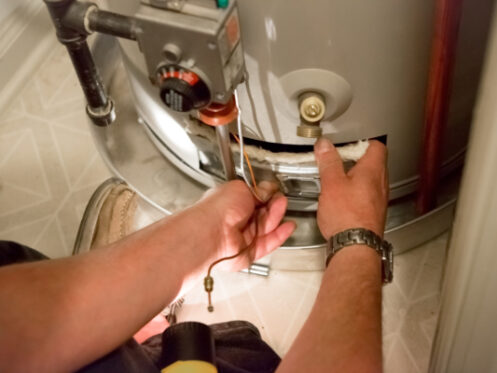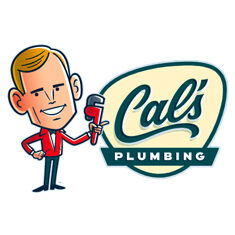If your home’s water heater is more than eight to 10 years old, upgrading to a new unit can provide many important benefits. Most any new water heater will be much more energy efficient than a unit produced even a decade ago. However, your benefits will always be greatest if you choose to upgrade to a unit with a higher energy efficiency rating. With that in mind, here is a guide to the benefits of upgrading to a more efficient water heater as well as everything you need to know about water heater efficiency ratings and which types of units are best.
Understanding Water Heater Efficiency Ratings
All water heaters produced after 2017 are rated for energy efficiency using the Uniform Energy Factor (UEF) scale. The UEF of a water heater is determined through rigorous testing set out by the US Department of Energy. UEF ratings are quite complicated and it’s not all that necessary for you to fully understand how they are measured or what they mean. All you really need to know is the higher the UEF value is, the more energy efficient a water heater is.
While UEF ratings are important to consider, the best way to fully understand just how efficient a unit is or to compare the efficiency of different units is to look at the unit’s EnergyGuide label. This is because the label clearly states the estimated yearly energy cost for the unit, which makes it simple to compare various water heaters to determine which offers the best value. Now that you understand a bit more about water heater efficiency ratings, let’s look at the benefits of opting for a new, more efficient unit.
Lower Energy Costs
The biggest and most obvious benefit of upgrading to a higher-efficiency water heater is that it will save you quite a bit in energy costs. Depending on what type of unit you currently have and how efficient it is, upgrading to a new high-efficiency unit has the potential to save you hundreds, if not a few thousand dollars in energy costs over the life of your new unit.
Shorter Recovery Times
Recovery time refers to how long you will have to wait for a traditional storage-tank water heater to reheat after using up all of the stored hot water. While the exact recovery time depends partly on how large the unit’s storage tank is, the energy efficiency of the unit also has a major impact.
Energy efficiency is essentially a measure of what percentage of energy the unit consumes that it actually utilizes. You can also think about it as a measurement of how much energy the unit wastes. Higher-efficiency units more effectively make use of the energy they use. This means that the units heat more quickly and will thus have a shorter recovery time.
If you’re upgrading from a unit that is 10 or more years old, your recovery time will be reduced even further. This is because all older units suffer from things like sediment build-up and other issues that can lead to both longer recovery times and greater energy usage.
More Reliable Hot Water
Another important thing to pay attention to when looking at new water heaters is the unit’s First Hour Rating (FHR). FHR essentially measures how many total gallons of hot water the unit can supply in an hour when starting with a full tank of hot water. With less efficient units, the FHR is typically not much greater than the unit’s total storage capacity since these units have longer recovery times.
Higher efficiency units will generally always have a greater FHR, and in some cases, the FHR can be more than double the unit’s storage capacity. For instance, a high-efficiency 40-gallon unit could have an FHR of 85 gallons. This means that the unit could supply 85 gallons of hot water in an hour, which greatly lessens the chances of you running out of hot water even if everyone in your family showered at around the same time.
Fewer Repair Needs
No matter what type of unit you choose or how efficient it is, upgrading your water heater can also help you to save money on repair costs. Older water heaters will virtually always start to have more problems and need more repairs as they age, and it often doesn’t make sense to continually try to repair a failing unit that doesn’t have much life left. Another thing to consider is that your new unit will be covered by a manufacturer’s warranty so you won’t need to pay nearly as much out of pocket if it does need any repairs within the first six years or so.
Which Water Heaters Are the Most Energy Efficient?
Generally speaking, electric heat pump water heaters are more energy efficient than any other type of unit. This is because heat pump water heaters don’t actually use electricity to create heat as other electric units do. Instead, they use electricity to capture heat from the air using refrigerant and then transfer this heat to the water in their storage tank.
Any type of tankless water heater is also a great option, as the efficiency of these units is only slightly below that of heat pump water heaters. This is because tankless units don’t store hot water, which means they don’t have the same issues with heat loss and energy waste as storage tank units do. Another benefit of tankless water heaters compared to any other type of unit is that you’ll never have to worry about running out of hot water since these units heat on demand and can run continuously for as long as needed.
Still, none of this is meant to say that storage-tank water heaters are a bad option. Modern tank water heaters can still be extremely energy efficient compared to older units, and they are also generally the least expensive. The energy efficiency of storage-tank water heaters has increased quite a bit in the past decade or so, and this is especially true with gas units. The reason is that gas water heaters no longer use a traditional standing pilot light, which is important as pilot lights waste quite a bit of energy.
No matter what type of water heater you choose, we would always recommend opting for an ENERGY STAR-rated unit as this will always be the most efficient option and provide the best value for the money. To qualify for an ENERGY STAR rating, all new units must meet certain criteria in terms of minimum UEF and FHR. They are also required to meet certain warranty requirements, and this is usually a minimum of five to six years on all parts depending on the type of unit.
Tucson’s Water Heater and Plumbing Experts
If you’re looking to upgrade your water heater, Cal’s Plumbing is here to help. We offer a wide selection of storage-tank and tankless water heaters, and our plumbers can also handle any repair or maintenance needs to keep your new unit working as it should. We also specialize in drain cleaning and all types of residential and commercial plumbing repair and installation services as well as water filtration and purification. For more information on your options for a new water heater, give us a call today.





